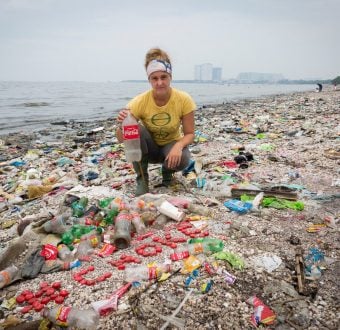“General Motor’s decision on PVC is a giant step in the right
direction,” said Rick Hind of Greenpeace USA in a letter to GM CEO
John F. Smith. “Now all auto manufacturers should take the
initiative to protect people and the environment from deadly dioxin
contamination.”
When PVC burns either in accidental car fires or during the car
recycling process, dioxin can be released into the atmosphere and
travel long distances, depositing on land and in water. Dioxin is
among the most toxic synthetic substances known. In minute
quantities, it can cause cancer, reproductive, developmental and
immune system health problems.
PVC also is used in car undercoatings and in electrical wiring.
Greenpeace called on GM to broaden its announcement to include the
elimination of all sources of PVC in autos.
In the past year, the auto industry has begun to turn its back
on PVC. Honda recently announced its intention to create a 100
percent recyclable auto by 2010, without PVC. Earlier this year,
two of the world’s largest automotive interiors suppliers, Lear and
Delphi, announced plans to move away from PVC for instrument panel
covers.
The recent mergers of U.S. and European auto companies may also
be adding to the retreat from PVC. Daimler Benz, which recently
merged with Chrysler, hasn’t used PVC for interiors or in
undercoatings in Mercedes autos since 1995. The Swedish company
Volvo, now a part of Ford, recently told Greenpeace it was
reassessing its use of PVC.
“GM’s decision may represent a sea change away from obsolete PVC
plastics toward safer materials-21st century materials-in all
products,” added Hind.
The use of safer non-PVC plastics in auto interiors will help
address urgent health questions regarding the many toxic additives
used in soft PVC plastics. Phthalates, vinyl softeners, have been
found to leach from a wide variety of PVC products including
children’s toys and medical products.
Greenpeace will continue to scrutinize GM’s policies and
practices on other pressing environmental issues, such as global
warming.

